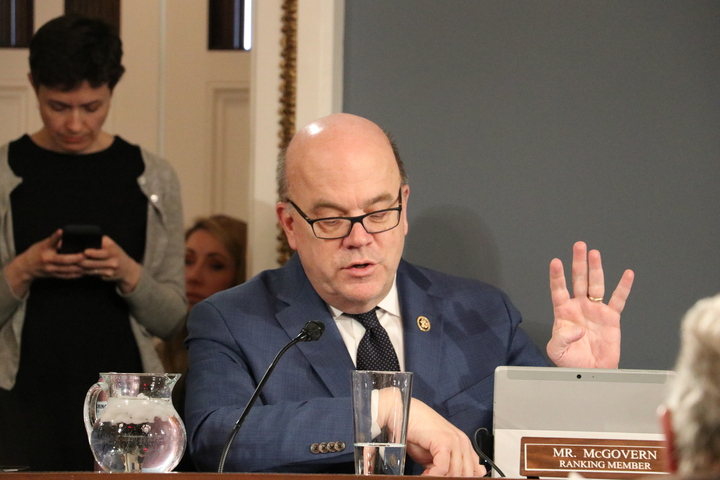WASHINGTON — The House Rules Committee on Tuesday advanced a bill to take away the Department of Energy’s authority over liquefied natural gas permits, effectively reversing the Biden administration’s pause on permit approvals that began last month.
During the hearing, the Republican-controlled committee voted along party lines to report to rule the bill, sending it to the full House. The legislation would give the Federal Energy Regulatory Commission the sole authority to approve or deny an LNG permit application.
Currently, applications also require the approval of the Department of Energy, which assesses the impact of the exports. FERC is responsible for looking at the environmental and economic impacts of the facilities.
Democrats pointed out that this was the fourth time a near-exact version of the bill came before the committee, and none made it through the Senate. They called it a sign of House Republicans’ inability to govern.
“I just think the bill is being brought up as a distraction,” Rep. Frank Pallone (D-N.J.) complained. “House Republicans are once again returning to this bill that’s already passed the House twice, even though it stands no chance of becoming law. And it’s not going to be law because it’s a bad bill.”
This is the first time the bill has been taken up since President Joe Biden announced on Jan. 26 an indefinite pause on pending decisions on LNG exports to countries where the U.S. does not have free trade agreements.
During a House Energy and Commerce subcommittee hearing last week, Republicans focused their concerns more on the effects Biden’s move will have on cutting profits and jobs in the energy industry. But on Tuesday, lawmakers on both sides of the aisle highlighted the same priorities: keeping gas prices low at home, bolstering national security and protecting the environment. However, there wasn’t agreement on how LNG could help achieve those goals.
Already-permitted projects are expected to triple the current level of LNG production in the United States by the early 2030s, But Republicans contended that won’t be enough to meet global demand.
According to the European Council, the E.U. gets the most natural gas from Norway at 30.3%, while the United States provides 19.4% and Russia provides 14.8%. An official from the European Commission told Reuters the pause would not affect U.S. LNG supplies in the next two to three years, and expressed confidence in the projects that have already been approved.
Ranking Member Rep. Jim McGovern (D-Mass.) accused House Republicans of “playing games” with the world’s security by refusing to consider the Senate bill containing Ukraine funding.
“We’re letting Ukraine dangle out there,” McGovern said. “Putin is salivating because he thinks he’ll have the green light to (continue to) invade Ukraine, and we’re doing this here, and we’re not even going to bring a bill on Ukraine to the floor anytime in the near future.”
China, the United States’ main economic rival, was the world’s largest LNG importer in 2023. The U.S. provides a significant portion of those imports, making up 43% of Chinese LNG sales and purchase agreements signed 2021-2022. Pallone criticized the United States promoting China’s economic and military growth.
But Rep. Jeff Duncan (R-S.C.) said having China buy more natural gas produced in the United States benefits the country by funding American companies.
Producing enough LNG to meet China’s full demand for energy would also significantly lower emissions from the highest polluting country, Republicans argued, repeatedly describing LNG as clean energy.
“If you want to reduce China’s emissions, provide them a way to make that happen,” Rep. Michael Burgess (R-Texas) said.
Previous academic and government research indicate that LNG can reduce global warming by replacing coal. However, a few studies have concluded that the warming effect from LNG is higher than from coal in the short-term, using a higher rate of methane leakage, around 3%. The researchers believe this rate is more realistic than the 0.7% used in the DOE’s 2019 analysis. Methane is much more powerful than carbon dioxide, but carbon dioxide lingers longer in the atmosphere.
The pause will give the Energy Department the time to analyze the unknown effects on the economy and environment, Pallone said.
“All we’re saying is that we want to be able to look at this public interest, and what’s in the interest of America,” he said. “And all [Republicans] are saying is, we don’t need to do that anymore. To me that doesn’t make any sense.”


